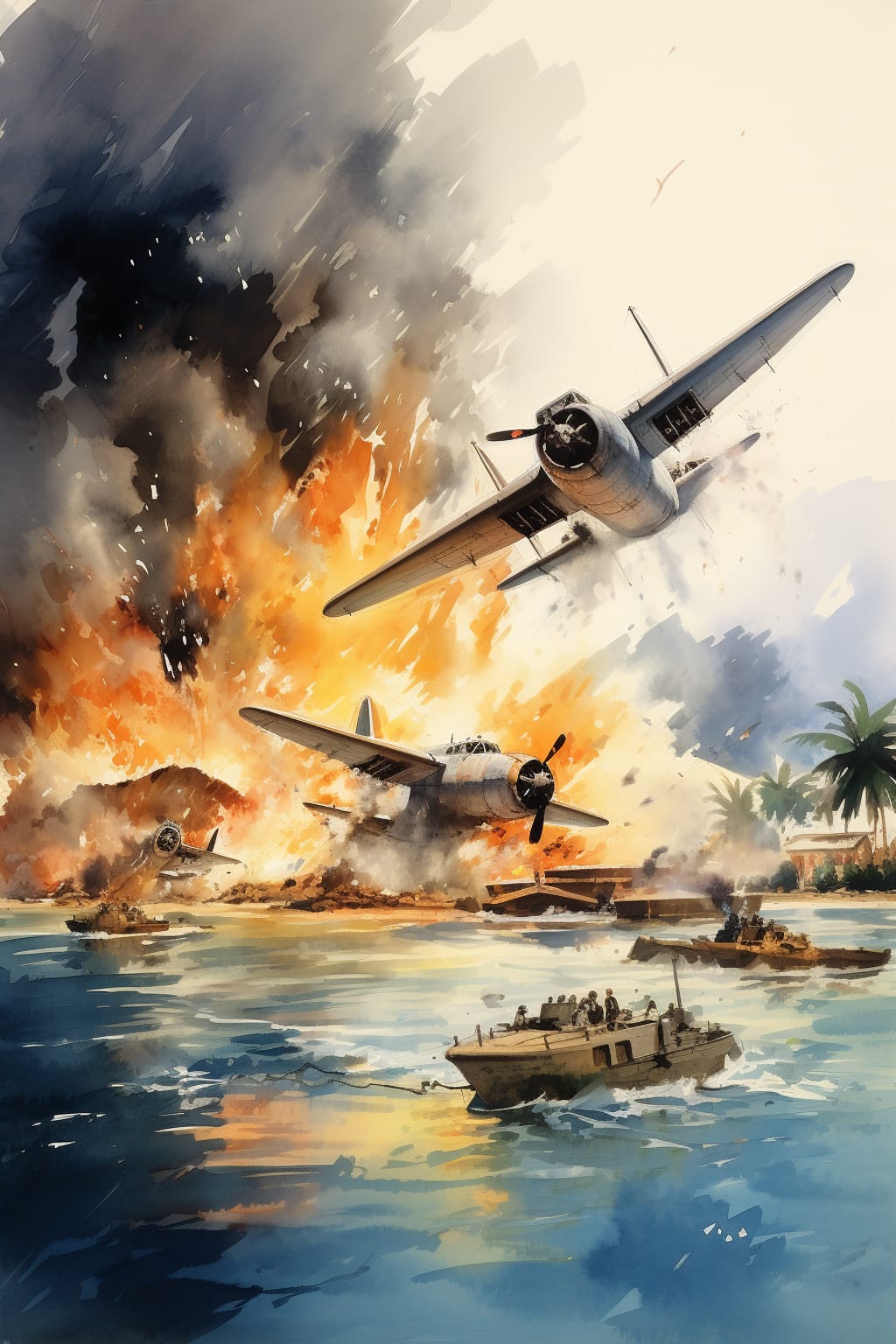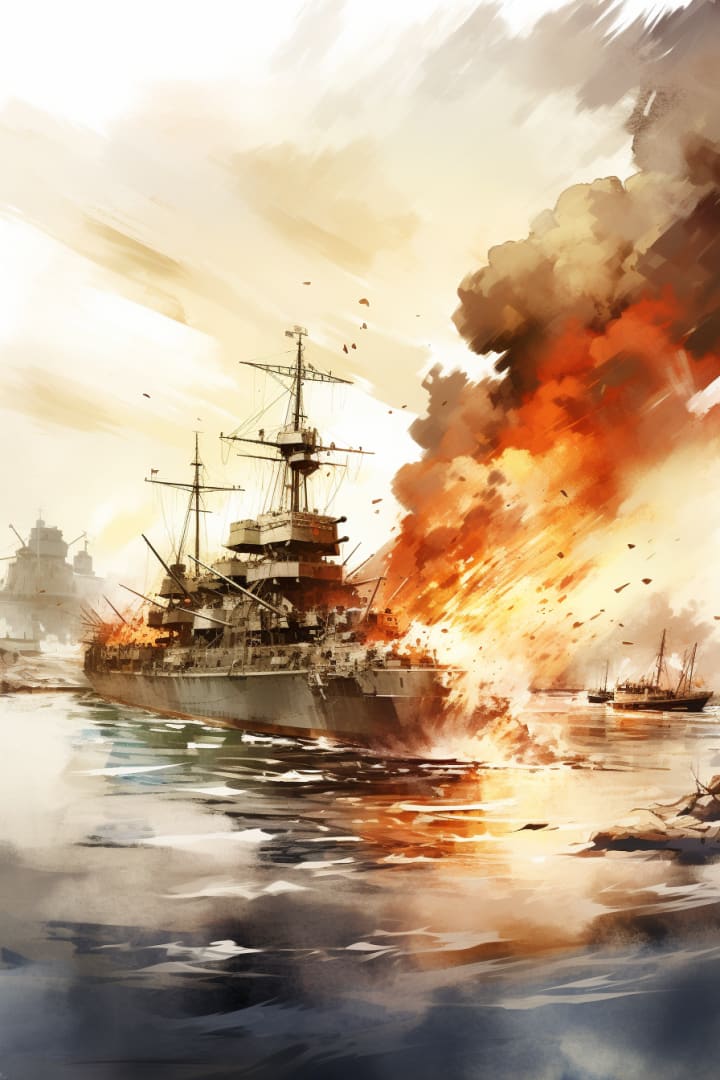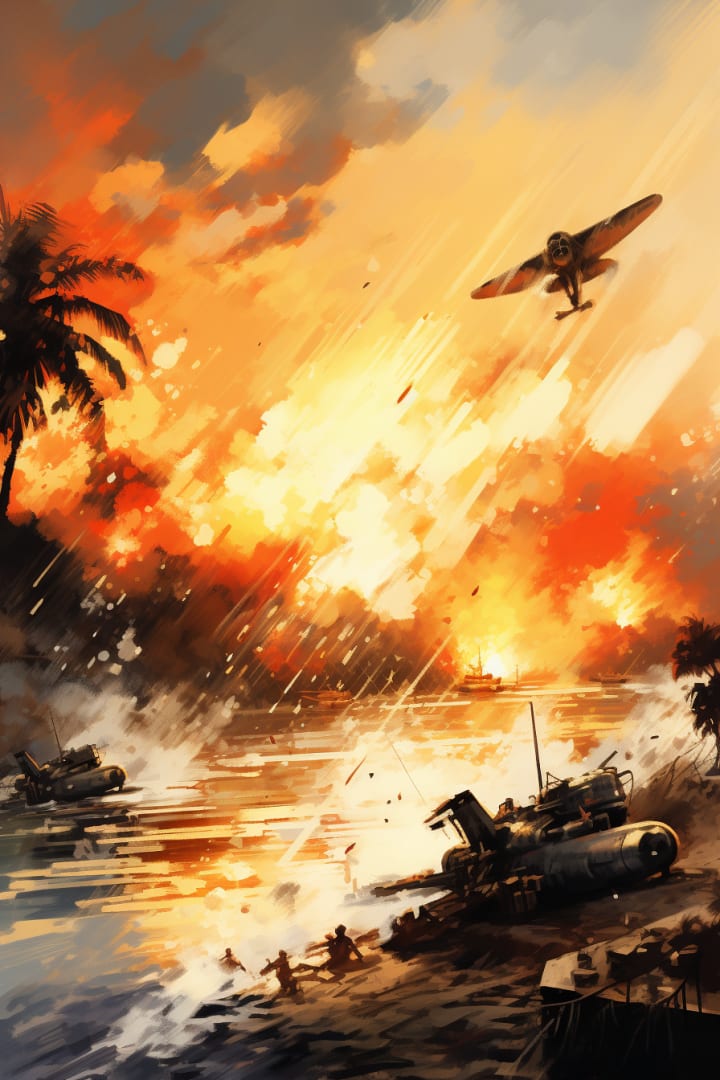Why did the Pearl Harbor Attack Happen? What Happened After Pearl Harbor?
WWII Historical Facts

The morning of December 7, 1941, became a significant moment in American history, famously known as a "date which will live in infamy," according to President Franklin D. Roosevelt. The unexpected assault on Pearl Harbor, a U.S. naval base in Hawaii, by the Imperial Japanese Navy marked a turning point in World War II, leading the United States into the global conflict. However, what were the factors that led to this destructive event, and how did the world respond?
What Caused the Pearl Harbor Attack?
The origins of the Pearl Harbor attack can be traced to a complex set of tensions that had been brewing for years between the United States and Japan. Here are some key reasons:
Imperial Ambitions: Japan, an emerging power in the early 20th century, aimed to extend its empire in Asia, including territories like Manchuria, China, and Southeast Asia with their rich natural resources. The U.S., however, viewed this expansion suspiciously and opposed Japan's aggressive moves.

Clashing Interests: To curb Japan's military expansion and stop its harsh occupation of China, the U.S. imposed economic sanctions, particularly on oil, which significantly weakened Japan's war capabilities.
Stalled Negotiations: Diplomatic talks between the two nations to resolve these issues hit a deadlock. Japan demanded the lifting of sanctions by the U.S. and recognition of its territorial gains in China, which the U.S. refused.
Military Tactics: Faced with diplomatic impasse, Japan chose a risky strategy: a surprise attack to cripple the U.S. Pacific Fleet and gain time for further conquests in Southeast Asia. Admiral Isoroku Yamamoto, the architect of the attack, believed it would take the U.S. at least a year to recover, giving Japan a strategic advantage in the Pacific.
The Path to Notoriety
In the months leading up to the attack, Japan meticulously planned its assault. A sizable task force, including six aircraft carriers, sailed stealthily across the Pacific Ocean toward Hawaii. Despite warnings about increased Japanese activities, the U.S. remained unaware of the imminent threat.
The Destruction of December 7th
On the morning of December 7th, 1941, just before 8:00 AM local time, hundreds of Japanese fighter planes descended on Pearl Harbor. In a relentless two-hour assault, the Japanese unleashed a devastating barrage of bombs and torpedoes.
The outcome was catastrophic. U.S. battleships, the pride of the Pacific Fleet, were either sunk or severely damaged. Aircraft on runways were obliterated, and airfields rendered inoperable. More than 2,400 American servicemen lost their lives, with another 1,000 wounded. The attack proved highly successful for Japan, achieving its immediate military objectives.
After Pearl Harbor
The Pearl Harbor attack had a profound impact on World War II's trajectory.

U.S. Entry into the War: Following the attack, President Roosevelt delivered a stirring speech to Congress, denouncing the act as "a date which will live in infamy." With widespread public support, the U.S. formally declared war on Japan, marking a pivotal shift in American foreign policy from neutrality to active involvement in the global conflict.
Unified Resistance: The attack galvanized public opinion against Japan, as well as its allies, Germany and Italy. The U.S. allied with other powers against Axis aggression, solidifying a united front.
A Prolonged Struggle: Pearl Harbor was just the beginning of a protracted and brutal war in the Pacific. Over the next four years, the U.S. engaged in a grueling island-hopping campaign to defeat Japan. Battles like Midway, Iwo Jima, and Okinawa became symbols of the immense sacrifices required for victory.
The Legacy of Pearl Harbor
The Pearl Harbor attack remains a pivotal moment in American history, underscoring the sudden eruption of war and the dire consequences of unchecked aggression. It also heralded an era of American global leadership, shaping international dynamics for decades.
Today, Pearl Harbor stands as a memorial honoring those who perished on that tragic day—a place of reflection, reminding us of the sacrifices made in defense of freedom and urging vigilance in confronting ongoing geopolitical challenges.
About the Creator
Exotic History
Welcome to Exotic History, where the past comes alive with vibrant stories and intriguing narratives. We are your gateway to a world of captivating historical accounts, adventures, and forgotten tales that span the globe.






Comments
There are no comments for this story
Be the first to respond and start the conversation.